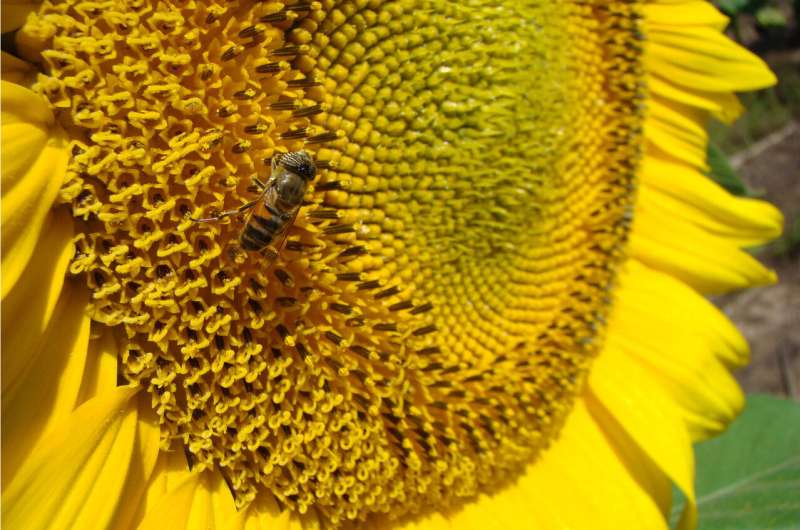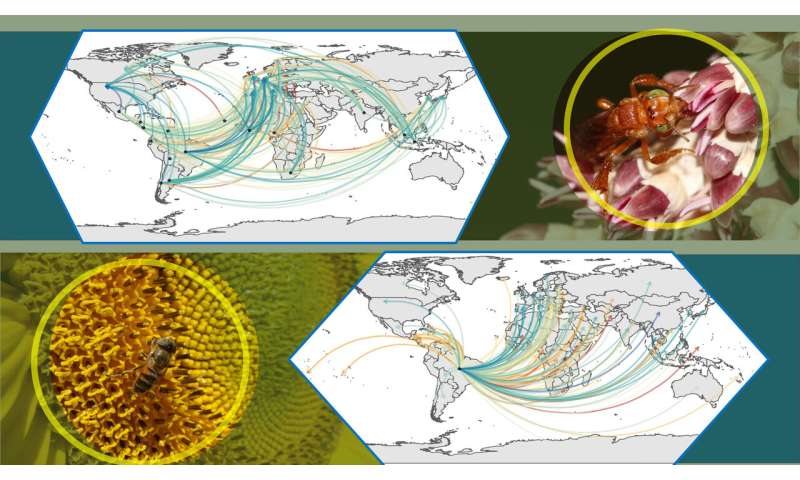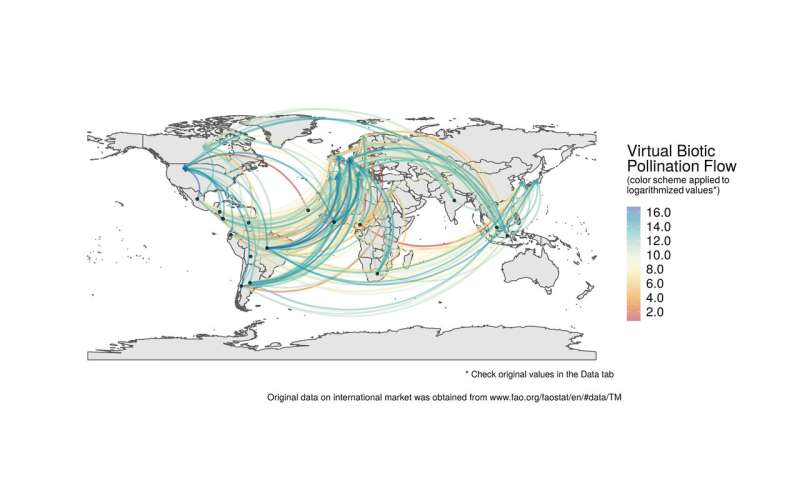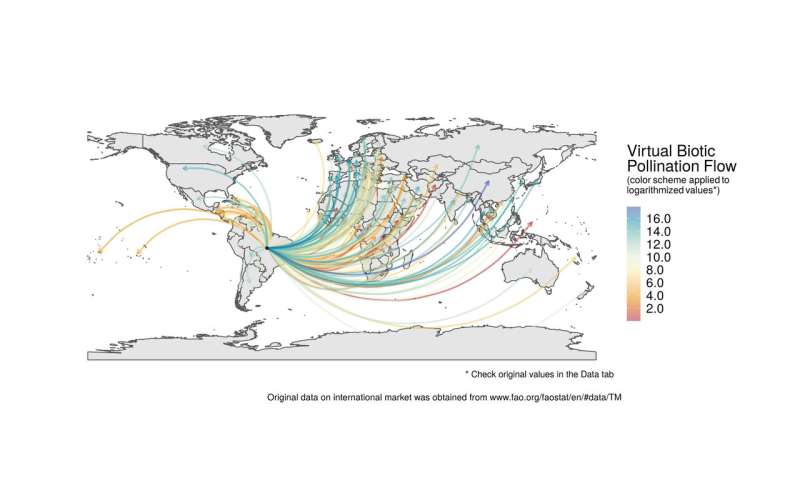March 11, 2021 report
Researchers propose virtual biotic pollination flow as indicator of countries' interdependence

An international team of researchers is proposing the creation of a system for biotic pollination flow between countries that represent the mutual dependence between them. In their paper published in the journal Science Advances, the group describes their ideas for highlighting pollination flow as a way to better manage pollinator preservation.
The work involved looking into the degree of dependence on pollinators by different countries around the world, including virtual dependence, in which a country imports food crops that require pollination to grow. To learn more about such dependence, the group looked at data describing 55 pollination-dependent crop markets for the years 2001 to 2015. As part of their effort, the researchers looked at pollination services in both developed and undeveloped countries.
In looking at their data, the researchers found that developed countries import a large amount of crop food that requires pollination to grow. Conversely, they found that the major crop-food-exporting countries are major drivers for pollinator decline. As the demand for food in developed countries grows, underdeveloped countries convert more natural pollinator-hosting lands to crops, reducing biodiversity. They also begin using chemicals to reduce weed and insect damage. Both activities result in hardships for pollinators such as bees, beetles and flies, reducing their numbers.
-

This figure combined two flow maps and two photos of pollinators. Credit: Felipe Deodato, Luísa G. Carvalheiro, Frédéric Mertens, Cristiano Menezes -

This figure show the main developing countries exporting to countries in Europe, North America, and Japan. Credit: Karlo Guidoni-Martins -

This figure show Brazil exporting for all countries. Credit: Karlo Guidoni-Martins
The researchers suggest the development of an international system similar to those for international sharing of water and land resources, but for pollinators and the factors that are involved in their survival. They note that approximately 75% of crop foods need pollinators to grow and that 35% of all crop production requires pollination services. Developing a concept that includes virtual dependence on pollinators, they suggest, could help drive decision-making or discussions between importing versus exporting countries. They suggest further that countries on both sides of such trade agreements need to take responsibility for reducing conditions that are putting pollinators at risk. To that end, they have created a tool to help decision makers see how the food trade is impacting different countries across the globe. They suggest their tool can identify regions that could be targeted for biodiversity protection.
More information: F. D. S. Silva et al. Virtual pollination trade uncovers global dependence on biodiversity of developing countries, Science Advances (2021). DOI: 10.1126/sciadv.abe6636
Journal information: Science Advances
© 2021 Science X Network



















